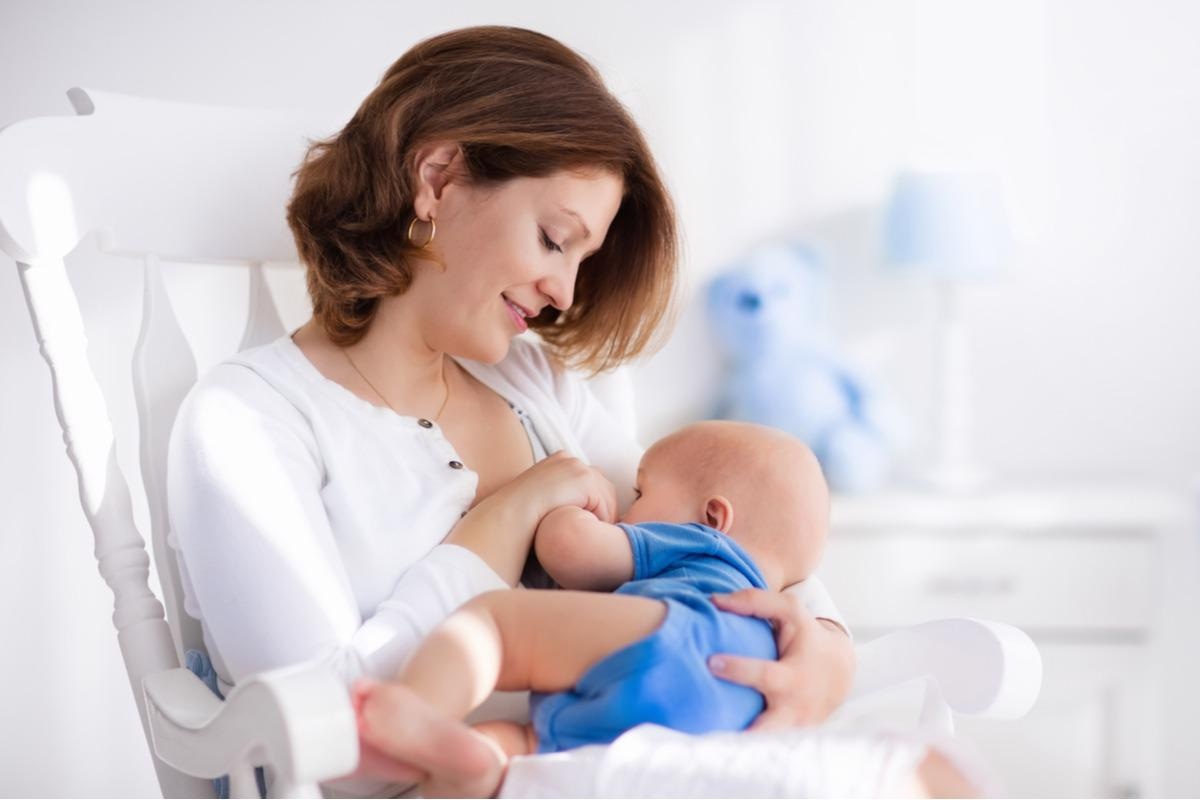The coronavirus disease 2019 (COVID-19) pandemic, caused by the severe acute respiratory syndrome coronavirus-2 (SARS-CoV-2) infection, resulted in devastating mortality and an enormous number of documented cases of illness. Long-term complications of COVID-19 are extremely common and affect the daily life, productivity, and mental health of millions of people.

Study: Identified Human Breastmilk Compositions Effectively Inhibit SARS-Cov-2 And Variants Infection and Replication. Image Credit: FamVeld / Shutterstock.com
Introduction
Human milk contains hundreds of bioactive factors that regulate immune function and have antimicrobial activity. As such, breastfeeding confers immunity to the human immunodeficiency virus (HIV), cytomegalovirus (CMV), and dengue virus, as well as rotavirus, enterovirus, and adenovirus.
Some of these components are lactoferrin, mucins (MUC1 and MUC4), α-lactalbumin (α-LA), lactadherin, lactoperoxidase, and lysozyme (LZ). Human milk also contains antibodies like immunoglobulin A (IgA) and IgG that suppress viral infection.
Lactoferrin is an iron-containing protein that is found at a concentration of 1-2 g/L in mature milk and 5-10 g/L in colostrum. This protein prevents the binding of SARS-CoV-2 to heparan sulfate, a proteoglycan molecule, and could thus be a potential inhibitor of this molecule. However, breastmilk was found to be a more effective inhibitor than lactoferrin alone, thus indicating the activity of other virus-suppressive factors in milk.
The current study examined factors in breastmilk that could potentially inhibit SARS-CoV-2 infection using a combination of methods. They explored the activity of various fractions in pseudovirus assays in multiple cell lines, while also using transcription and replication-competent SARS-CoV-2 virus-like-particles (trVLP).
Study findings
The researchers found that lactoferrin, MUC1, and α-LA were potent inhibitors of both wildtype and different SARS-CoV-2 variants, as they suppressed viral entry and replication within the cell.
Using trVLP with cell culture, treatment with these three factors was found to significantly reduce the levels of viral ribonucleic acid (RNA) in the cell lysates. Viral replication was also significantly affected by lactoferrin and MUC1. At a high concentration, α-LA also blocked SARS-CoV-2 infection.
The level of expression of the viral spike was also lower in cell lysates following treatment with these factors. Interestingly, all lactoferrin orthologs from goat and cow milk inhibited SARS-CoV-2 pseudovirus infection, even though they had different sequences. At high concentrations, goat lactoferrin showed cell toxicity, but not the others.
The 50% effective concentration (EC50) for MUC1, LF, and α-LA was relatively low in pseudovirus and trVLP assays. All three factors showed no toxicity at the highest concentration. Even at low concentrations, all three showed early suppression of SARS-CoV-2 infection; however, sustained inhibition was observed only with the first two.
This suggests that α-LA inhibits only the early steps of the SARS-CoV-2 life cycle where the virus attaches to and gains entry into the host cell. Comparatively, LF and MUC1 adversely affect viral attachment, entry, and post-entry replication events.
Specifically, lactoferrin and MUC1 prevent viral attachment to heparan sulfate proteoglycan and, as a result, viral entry, at least in part, without blocking its interaction with the angiotensin-converting enzyme 2 (ACE2) receptor. Conversely, α-LA interferes with the interaction of ACE-2 and the viral spike protein.
All three components also suppressed the infection and replication of several common SARS-CoV-2 variants including the Alpha, Beta, Gamma, and Kappa strains, as well as the wild-type SARS-CoV-2 strain, in a time-dependent manner.
Implications
The current study identified three breast milk components that inhibited SARS-CoV-2 infection in multiple cell lines. Moreover, lactoferrin and MUC1 were found to inhibit multiple steps in the virus life cycle, while α-LA could only block viral attachment and entry into the cells. Taken together, these factors could be developed into potent antivirals to treat and prevent COVID-19.
Earlier work by the same authors, coupled with other research, indicates that even if live SARS-CoV-2 is present in breast milk, it neither infects the breastfeeding infant nor transmits the virus to others. In keeping with this apparently high antiviral activity of breast milk, the World Health Organization (WHO) recommends that newborns be breastfed, even if the mother has symptomatic SARS-CoV-2 infection, in light of the numerous and significant benefits of breastfeeding to infant health and development.
The low EC50 values of these factors, which are over ten times lower than their concentrations in breast milk, indicate the strong antiviral activity of breast milk against SARS-CoV-2 while also preventing vertical transmission or the risk of viral spread to others.
The persistence of high antiviral activity against SARS-CoV-2 variants, even those with escape mutations, indicates that breast milk offers protection against this virus
"These promising findings showed the safety of breastmilk feeding in the clinic, nonetheless further studies are still needed to confirm our data in both animal and clinical studies and further modification of these proteins if necessary for potential clinical usage.”